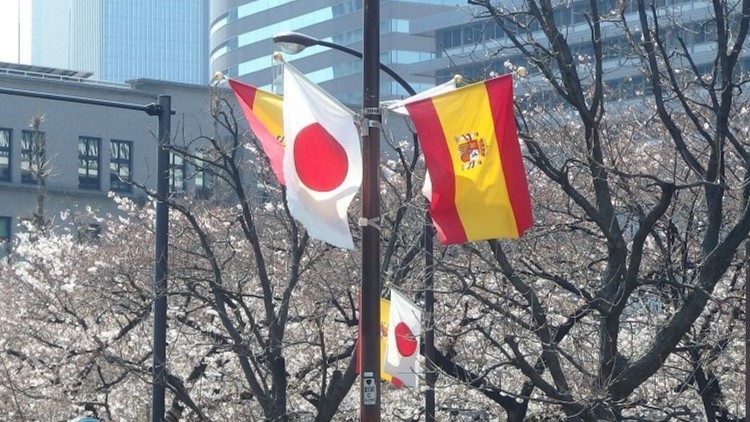 Pablo Rubio Apiolaza
Pablo Rubio Apiolaza
PhD in Contemporary History (Universidad Autónoma de Madrid), specialist in Latin American political history and collaborator of Fundación Alternativas
On 2 June, presidential elections were held in Mexico, the second most populous country in the Latin American region. In addition, 128 senators and 500 federal deputies, members of the country’s legislative branch, were elected. According to the official results, these elections gave Claudia Sheinbaum as the clear winner (with 59% of the votes), thus continuing for another six years the guidance of the current president, Andrés Manuel López Obrador (AMLO), who has been in office since 2018.
It is possible to understand the electoral triumph of Sheimbaum (Mexico City, 61 years old) by taking a long-term historical perspective that starts in the 20th century. After a modern history that began with the Revolution of 1910 – the key political event of the 20th century in Mexico – the country experienced a long regime of power, hybrid in its democratic forms, known as the “single party”, a product of the unchallenged hegemony of the Institutional Revolutionary Party (PRI), which it had held since 1929. It was not until the year 2000 that this regime underwent a certain opening with the electoral triumph of the conservative National Action Party (PAN), which, although it raised hopes of change, failed to bring about any significant transformations in the country.
In the 21st century, the country accumulated new contemporary social phenomena, such as massive migration to the United States, the problem of the border with that country, and above all the violence caused by drug trafficking and organised crime. This altered the parameters of coexistence in this geographically, socially, economically and ethnically complex country. With regard to violence, in the first four years of AMLO’s government, between 2018 and 2022, more than 100,000 people have lost their lives in Mexico, as a result of the violence associated with drug trafficking and its related mafias, the failure of the State, and the corruption associated with all of this. In 2023, there were more than 30,500 murders in the country.
Despite this, during the administration of AMLO and his party Movimiento de Regeneración Nacional (MORENA), he has had great success due to social policies (transfers) towards the neglected sectors, mixed with a nationalist and progressive rhetoric, very typical of the Mexican left. During his six-year term in office, the country had an all-time record in foreign direct investment, which exceeded 36 billion dollars in 2023, and a deepening of economic relations with the United States, its major trading partner. In this way, AMLO’s popularity ratings have been among the highest of Latin American presidents, despite his accusations about his relationship with the press and the opposition.
Claudia Sheinbaum, as the official candidate, outperformed Xóchitl Gálvez, the standard bearer of the opposition alliance between the PRI, the PAN and the Party of the Democratic Revolution (PRD), the traditional parties, by more than thirty points, and Jorge Álvarez, running for Movimiento Ciudadano, a centrist party that achieved only 10.5 per cent of the votes cast.
Regarding the historical significance and future challenges Sheinbaum faces as president of Mexico, one might consider:
- The situation of women in Mexican politics. In more than 200 years of independent life, Sheinbaum becomes the first woman president in the history of the North American nation. A member of a middle-class family, this academic with a PhD in Energy Engineering and a member of MORENA has had a career that has taken her to the highest public offices, all the way to the presidency. “I am not alone. We are all here, with our heroines who gave us our homeland, with our ancestors, our mothers, our daughters and our granddaughters”, she said in her first speech after her election victory, showing herself to be part of a cultural transformation in a country characterised by the predominance of macho and patriarchal structures.
- The change in the political party system. One of the most important effects of the recent elections is MORENA’s strong control over the legislative branch and state governorships. At the regional level, the vast majority of states, 24 out of 32, were in the hands of MORENA, showing great power within this federal country. At the legislative level, the organisation won an overwhelming majority (372 deputies and 83 senators), together with its allied parties. The numbers would ensure the ruling coalition an absolute majority in deputies, but not in the Senate, where they would need two more seats than they have. At the same time, this election represents a considerable electro-constitutional decline of the country’s traditional political parties, such as the PRI, the PAN and the PRD, an unprecedented phenomenon in the country’s history. The challenge for Sheinbaum and MORENA, then, lies in their ability to respect minorities and avoid the authoritarian temptations of some countries in the region.
- Differentiation with AMLO. One of the biggest political challenges that Claudia Sheinbaum will face lies in the projection of the political project of the “fourth transformation”, which AMLO proposed in his 2018 programme. After the transformations of Independence and Reform in the 19th century, together with the Revolution of 1910, AMLO and Sheibaum have implemented an ambitious project for the structural transformation of Mexican society. But at the same time, one of the biggest challenges for the new president is to differentiate herself from her predecessor, and the influence AMLO could have on the new government. To this end, Claudia Sheibaum has in her favour a greater academic preparation, experience in public affairs and a character that could give her government its own stamp, beyond AMLO’s influence on Mexican politics over the last twenty years. Mexico’s current problems, such as violence, corruption, migration and deep inequalities, could find the country’s first woman president an appropriate leadership to consistently address these challenges.






